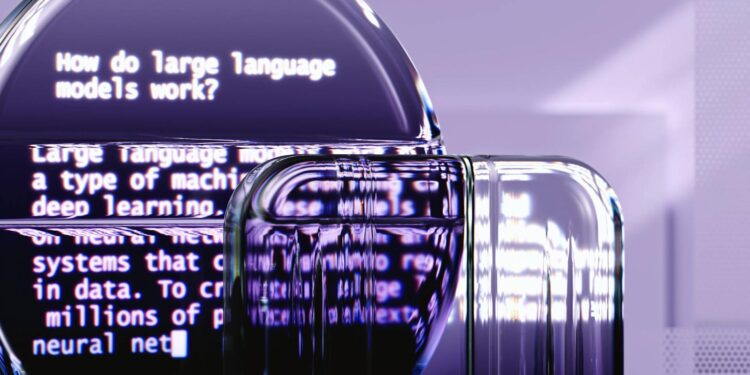The digital landscape is undergoing a seismic shift, unlike anything witnessed before. At its epicenter is Generative Artificial Intelligence, a technology that has burst from research labs into everyday consciousness with astonishing speed. This isn’t merely about creating clever chatbots or sophisticated image generators; it’s a profound paradigm shift. Generative AI’s lightning-fast evolution isn’t just creating new tools; it’s fundamentally reshaping industries, revolutionizing career paths, and redefining the very nature of human-computer interaction. From automating complex tasks to inspiring unprecedented creative breakthroughs, understanding its multi-faceted impact is crucial for individuals and enterprises navigating this rapidly evolving technological frontier.
The dawn of a new era: Generative AI’s rapid ascent
Generative AI, exemplified by large language models (LLMs) and sophisticated diffusion models, represents a significant leap beyond traditional AI. Where older AI systems excelled at analysis and prediction, generative AI possesses the remarkable ability to *create* novel content—be it text, images, code, audio, or even video—that is often indistinguishable from human-produced work. This capability has not emerged gradually; its development has accelerated at an unprecedented pace, driven by increasing computational power, vast datasets, and innovative algorithmic architectures. This rapid evolution means that yesterday’s theoretical capabilities are today’s practical applications, forcing industries and professionals to adapt almost in real-time. The accessibility of these powerful models, often via user-friendly interfaces, has further democratized their use, fueling widespread experimentation and innovation across diverse sectors.
Reshaping industries: From ideation to execution
The impact of generative AI is not confined to niche tech sectors; it is a horizontal technology permeating nearly every industry, optimizing workflows, enhancing creativity, and opening entirely new business models. In creative fields like marketing and design, AI can generate compelling ad copy, develop branding concepts, or create unique visual assets in minutes, drastically cutting production times. Software development sees accelerated code generation, debugging, and testing, allowing developers to focus on higher-level architectural challenges. Healthcare benefits from AI-driven drug discovery, personalized treatment plans, and efficient data analysis. Finance leverages it for market trend prediction, fraud detection, and automated reporting. This transformation isn’t just about efficiency; it’s about redefining the scope of what’s possible within these domains.
Here’s a glimpse at Generative AI’s impact across key sectors:
| Industry Sector | Key Generative AI Applications | Impact on Workflow/Output |
|---|---|---|
| Marketing & Advertising | Ad copy generation, image creation, campaign ideation | Faster content creation, enhanced personalization, A/B testing at scale |
| Software Development | Code generation, debugging, test case creation | Increased developer productivity, reduced time-to-market |
| Healthcare & Pharma | Drug discovery, personalized treatment plans, medical imaging analysis | Accelerated R&D, improved diagnostic accuracy |
| Media & Entertainment | Scriptwriting assistance, synthetic media, virtual world design | New creative possibilities, efficient content production |
| Education | Personalized learning materials, automated tutoring, content summarization | Tailored learning experiences, administrative efficiency |
Navigating the new career landscape: Skills for the AI age
The rapid integration of generative AI is inevitably altering the career landscape, leading to both job displacement and, crucially, the creation of entirely new roles. Repetitive, rule-based tasks are increasingly being automated, prompting a necessary re-evaluation of human skill sets. However, this isn’t simply about machines replacing humans; it’s about human-AI collaboration. New professions are emerging, such as prompt engineers, who specialize in crafting effective queries to elicit optimal outputs from AI models, and AI ethicists, who ensure responsible and unbiased deployment. For existing roles, success increasingly hinges on skills that complement AI capabilities:
- Critical thinking: To evaluate AI-generated content for accuracy and bias.
- Creativity: To guide AI towards novel ideas and solutions.
- Complex problem-solving: To identify challenges where AI can be a tool, not the sole answer.
- Emotional intelligence: For roles requiring empathy, negotiation, and nuanced human interaction.
- Adaptability & continuous learning: The most vital skill in an environment of constant technological evolution.
Future-proofing a career now means embracing AI as a powerful co-pilot, enhancing productivity and enabling focus on more strategic, creative, and interpersonal aspects of work.
The evolution of human-computer interaction: A more intuitive future
Perhaps one of the most profound, yet often overlooked, impacts of generative AI is its radical reshaping of human-computer interaction (HCI). Historically, interaction has been constrained by rigid interfaces, requiring humans to learn specific commands, syntax, or navigation paths. Generative AI, particularly through advancements in natural language processing (NLP), is dismantling these barriers. We are moving towards a future where interaction feels more natural, intuitive, and conversational. Imagine simply describing a complex data analysis you need, and the AI generates it; or sketching a rough idea, and the AI refines it into a polished design. This shift positions AI as an intelligent, responsive collaborator, not merely a tool that responds to predefined inputs.
This evolution encompasses:
- Conversational interfaces: Beyond simple chatbots, AI-powered assistants can understand context, remember past interactions, and engage in multi-turn dialogues.
- Personalized experiences: AI adapts interfaces and content to individual user preferences and needs, making digital interactions feel uniquely tailored.
- Intent-based interaction: Users express their intent in natural language, and the AI translates it into complex operations, abstracting away technical complexities.
- Generative feedback loops: AI not only produces content but can also provide intelligent suggestions, critique, and alternative options, fostering a more dynamic and iterative creative process.
This more fluid and adaptive HCI promises to make technology more accessible, powerful, and seamlessly integrated into our daily lives, transforming how we work, learn, and create.
The ongoing, rapid evolution of Generative AI is more than just a technological advancement; it’s a fundamental societal transformation. It is dramatically reshaping industries by optimizing operations, accelerating innovation, and creating entirely new product categories. Simultaneously, it demands a rethinking of traditional career paths, emphasizing the critical need for uniquely human skills like creativity, critical thinking, and emotional intelligence to effectively collaborate with AI. Crucially, it is revolutionizing human-computer interaction, making technology more intuitive, conversational, and deeply integrated into our daily workflows. As we navigate this dynamic landscape, embracing continuous learning, ethical considerations, and adaptability will be paramount for individuals and organizations alike to thrive in an era where human ingenuity is amplified by intelligent machines.


















